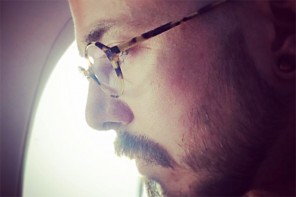Most progressives clucked their tongues when some Christian conservatives condemned (and tried to censor) the phenomenally successful Harry Potter franchise, which comes to its provisional conclusion this week with the release of the eighth film in the series. There they go again, we thought. Yet while many specific critiques of the series are simply phobic reactions to the presence of witches, wizards, and magic, I think many anti-Potterites may be onto something interesting—even if they’re not aware of it themselves. (Warning: this article contains spoilers galore.)
The final film, Harry Potter and the Deathly Hallows, Part 2, is, like most of its predecessors, quite faithful to the books. This last film, among the best in the series, is more action-packed and thus less reflective than some of the other installments, but the basic arc of the story remains consistent. Harry Potter, boy wizard, is actually the Chosen One who will, prophesies say, defeat Lord Voldemort, or die trying, or both. As readers of the books have known for some time now, “both” turns out to be the answer. Harry is killed by Voldemort, but, Christ-like, returns from the dead to ultimately vanquish his foe.
Except Harry isn’t Christ. He returns from death not because of divinity or grace, but because he possesses the “Resurrection Stone,” one of the three ‘deathly hallows.’ The hallows are all magical objects: the invisibility cloak, the elder wand (which ultimately undoes Lord Voldemort), and the resurrection stone. Once again, they are not blessed, divine, or even holy. They are magical technology: things that have powers.
Weirdly, the last few Potter books are chock-a-block with these totemic magical items. Lord Voldemort is able to be semi-immortal himself because he has bound up his soul in seven physical objects, called horcruxes. The discovery of this magical technology was the main revelation of HP6, and the slow elimination of the horcruxes (including Harry himself) is the main task of the heroes of HP7. Here again, Potter is rigorously materialistic in nature. Magic may be mysterious, but the strongest forms of it are bound to physical objects which have or are imbued with magical power.
The closest the series ever comes to something like providential grace is in the case of Gryffindor’s Sword, which twice appears out of thin air to aid heroes in distress. Yet, we are told, this too is the result, not of any superhuman force, but of Gryffindor’s own power. Indeed, author J.K. Rowling does a remarkable job of humanizing and deflating the one godlike figure in the series of books, headmaster Albus Dumbledore. Early on, Dumbledore appears infallible, wise, and invulnerable. But particularly in the last volume, he is revealed to be human and full of faults. Thus even the stand-in for a beneficent father-deity is relentlessly demystified, brought down to Earth. Every time grace seems to creep in, it’s revealed to be all-too-human.
Harry Potter’s world is one of materialist magic, and while its ethical teachings are basically “Judeo-Christian” (love is important, trust in your friends, be brave no matter what people say, etc.), these teachings are played out against an ontological/theological background that is thoroughly devoid of a monotheistic deity. Oddly enough, Harry Potter’s world would be more familiar to a scientist than to a mystic. Yes, the world includes goblins, charms, and curses; but these are all basically explicable according to their own internal logic. What’s missing is anything like the numinous, or any supernatural power—by which I anything that transcends human knowledge.
I should be clear that, for me, none of this is problematic. As a non-dualist with pantheistic leanings, I’m only too happy for the sacred/Sacred to be represented as a concatenation of this-worldly forces, many of which are capable of inspiring wonder. Harry, Ron, and Hermione’s escape from Gringott’s Bank on the back of a dragon is an exhilarating spiritual moment (even if it closely resembles Harry’s hippogriff ride from HP3), and I don’t really care if their wonder is the result of a this-worldly or other-worldly miracle.
But that’s me. For a conventional theist, surely it is problematic that Harry’s drama of good versus evil plays out in an entirely this-worldly context. God (by which I mean here the unreconstructed monotheistic God) has no role whatsoever. The best man wins the duel—or rather, the man with the best wand.
Now, one could, of course, make the same claims about comic-book sagas like Superman or Batman. Why should Harry Potter have to take any more refuge in the numinous than Kal-El or Bruce Wayne?
Well, because there is something intrinsically religious about the Potter series; and I don’t just mean the rabid devotion of its fans. Potter raises Ultimate Questions, much to Rowling’s credit. It is a meditation on the nature of good and evil, what it means to become an adult, and of course it takes place in a world filled with magic and wonder. Harry Potter is less a comic-book hero than a fantasy hero, and fantasy worlds exist according to their own internal theological grammars. The Lord of the Rings has its creation myth (told in The Silmarillion) with a full array of angels, demons, and something resembling gods. Star Wars, more properly understood as fantasy than as science fiction, has its Force. Narnia, of course, has its Aslan. Whereas comic-book heroes are merely highly gifted individuals (superhuman in the DC universe, ingenious-human in Marvel) operating in the more-or-less familiar world, fantasy heroes exist in entirely different ones. And Harry Potter’s is unique in its secularism.
Rowling’s great genius was to so thoroughly imbricate the magical world and our own that she invited children of all ages to imagine that magic was not so otherworldly after all, but was right here, albeit beneath our notice. Yet Potter’s world is still a total re-visioning of the world we know, and as such comprises a complete, self-contained mythic universe. And the forces that govern that universe are entirely this-worldly, non-theistic, and basically material.
From the medieval period through the modern and postmodern eras, European “secret societies” codified their beliefs in a similar way. What for religious traditions are sacred sites and sacred objects became understood as secret sources of power: the Temple in Jerusalem, the Shroud of Turin. Detached from their contextual religious significance, such objects became regarded as magical sources of power. Like Harry Potter’s world, their true power was concealed from the uninitiated, but was available esoterically to a select few. Such societies were often branded as heretical, other times co-opted by church authorities.
The very notion that the world is not one of ordinary objects supervised by a supernatural deity, but rather a world of ordinary and extraordinary objects that doesn’t seem to be supervised by anything, has more in common with Enlightenment rationalism than with traditional religion. We may get distracted by the superstitions and doctrines, but really, such philosophies are resolutely secular—all the more so for being esoteric and magical.
I loved the eighth Potter movie, and nearly shed a tear when it ended. But I think part of why I loved it, and the series as a whole, is the same reason that religious conservatives mistrusted it: because Rowling’s world is a magical, pagan universe in which chthonic beings duke it out without any hint of a Supervisor in Chief. Its Christ figure is a human boy who lives, dies, and is reborn, thanks to a magical stone. Its Satan is a human wizard gone awry, drunk with his own power. It’s a magical, wonderful world—and, in conventional terms, a godless one.



